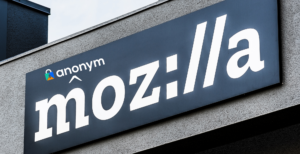Things are moving (pardon the pun) FAST in CTV programmatic. Total spend topped $21 billion in 2023, representing roughly 4x growth over the last five years. But if we want to ensure those ad dollars translate into outcomes, we collectively need to slow down and make time to proactively attack fraud and transparency concerns before they get worse.
Media-buying platforms should be aggressively validating impressions before bids are placed. Advertisers can do their part by asking a simple-but-tough question of their partners: How do you know your impressions are reaching the right (real) people?
Huge growth in CTV brings escalating bot fraud
With double-digit growth every year, CTV ad spend is outpacing every other major ad format and now accounts for one in 10 US ad dollars, according to eMarketer. A full 90% of that CTV ad spend is programmatic.
As we’ve seen across other programmatic formats, fraud follows the dollars. DoubleVerify says CTV bot fraud is growing by 69% year-over-year. And Pixalate, the authority on CTV fraud protection, most recently reported nearly 1 in 5 CTV ad impressions represented invalid traffic (IVT).
Bigger question: How are you validating impressions?
Bot fraud is part of a larger gap around validation of CTV programmatic impressions. This is not a single-fault issue. Rather, it’s a byproduct of the fast-moving and fast-growing CTV programmatic space.
The status quo sees both advertisers and media-buying platforms moving too quickly and not doing enough to validate the legitimacy and relevancy of impressions.
Media-buying platforms, trying to reap the benefits of faster bidding for themselves and their advertiser clients, too often fail to authenticate impressions before bidding. And while many advertisers now work with third parties for validation, this often post-hoc validation amounts to a costly wait-and-see approach: Fraudulent and/or irrelevant impressions typically aren’t identified until the campaigns are done and the ad dollars have washed down the drain.
Validation should start with media-buying platforms
Third-party validation will play a critical role in CTV programmatic. But it shouldn’t be a burden on advertisers, and it can’t be the reactive backstop – particularly when the cost of third-party validation puts it out of reach for many small and midsize advertisers.
Validation should start with media-buying platforms. These ad tech partners have a mandate to ensure their clients’ ad dollars are spent responsibly, ethically and effectively. Media-buying platforms should be aggressively protecting and proactively authenticating impressions, using their own third-party experts to detect fraud and improve targeting relevancy – before bidding.
Advertisers can steer the industry toward trust and transparency
For better or worse, economics fuel the ethics of the digital ad industry. So advertisers must put pressure on ad tech partners by demanding this type of proactive validation and transparency. Funnel ad spend into media-buying platforms that demonstrate dedicated programs to catch IVT, improve ad targeting and deliver legitimate, relevant impressions that drive outcomes.
Advertisers that can afford to add their own third-party validation should be using it as a double fail-safe, ensuring the impressions are coming from their media-buying platform. And smart, trustworthy media-buying platforms will see this double-validation as a value add, rather than a threat – an opportunity to collaborate to improve the results for all parties.
Learning from history: Let’s realize the full potential of CTV
The short history of CTV programmatic looks a lot like so many digital ad formats over the past few decades: The initial hype overreach creates momentum that too often pushes past hard questions around return on spend. Without pressure to deliver transparency, bad habits can easily become intractable norms.
Right now, more and more dollars are flowing into CTV, but advertisers are looking at a (slightly more favorable) variation on the Wanamaker cliché: Almost 20% of CTV ad spend is wasted — most just don’t know which 20%.
We’re at a critical rallying point: CTV programmatic spend is about to go through the roof; that much is certain. Let’s make sure we create the shared responsibility needed to make the most of this medium. Advertisers and their ad tech partners need to collectively commit to an aggressive, proactive approach to fraud detection and impression validation, to put the right ads in front of the right people – real people – every time.
For more articles featuring Ruby Resendez, click here.













